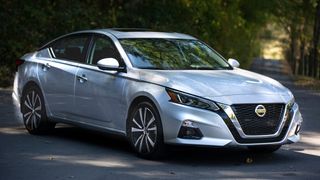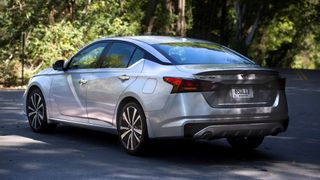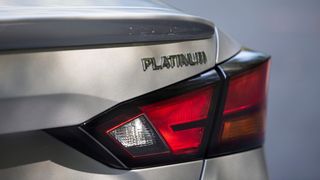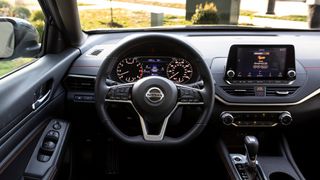How full-stop adaptive cruise control helps you drive the 2020 Nissan Altima
No more dinged fenders

Driving in heavy traffic these days doesn’t have to be so stressful. In the past, if you commute each morning (remember those days?) or drive for fun and get caught in a traffic jam, it can be a hectic experience. Cars suddenly stop on a dime for no reason. The traffic flow is more like a series of false starts. If you are not constantly paying attention (and I mean constantly), you can easily bump into another car in front of you.
When I used to commute on a daily basis, I had at least three minor fender-ding mishaps. Nothing to call the insurance company over and not even cosmetically obvious, but still annoying. I used to specifically drive lower cost vehicles for that reason. I used to drive to Minneapolis and people don’t pay attention. These days, it’s quite different.

In the 2020 Nissan Altima, for example, a feature called Pro Pilot Assist can bring the car to a full stop on its own, sensing the car in front of you. It used to work only in higher-end cars from companies like BMW and the luxury brand Infiniti (which is part of Nissan). In fact, the first adaptive cruise control I have ever tested was in an Infiniti car maybe 10 years ago.
Sensors can monitor the speed of traffic at all times. If a car brakes in front of you, then the Altima also brakes. You don’t have to be 100% vigilant, which is not an excuse to use your phone but is just a comment on being human. We can’t stare straight ahead at all times but a computer certainly can (and won’t ever complain).

This helps us drive because weird things happen. In the Altima, I decided to drive to Minneapolis like the old days and noticed how I was less stressed out. I let the car do the hard work. As the traffic surged, and then suddenly moved forward and pretended to be untangled, the Altima could respond perfectly.
Not all adaptive cruise control can bring you to a full stop, especially in lower cost cars. Typically it's meant for 'low speeds', but if you come to a stop it disengages. Since you can go to a full stop and resume, the Altima is even better as a commuter car. I liked how the car didn’t make sudden stops but eases you down to a slower speed or stops, then resumes on its own.
Go with the flow
In the future, cars will do much more – they will not only come to a full stop, but they will connect to other cars and even highway monitors. Let’s say a city wants to encourage more traffic flow. Someday, an operator could communicate with all cars to separate farther apart and create a more even flow.
Get daily insight, inspiration and deals in your inbox
Get the hottest deals available in your inbox plus news, reviews, opinion, analysis and more from the TechRadar team.
Today, you can do this yourself by pressing a button on the steering wheel to stay closer to the car in front of you or farther away. It depends on your own trust factor in how close you want to get, although the Altima is happy to adjust speed no matter which setting you use. (I tend to keep it about halfway – not too close, not too far away.)

Apart from the safety factors, there’s a big win for fuel economy as well. If every car was adjusting speed constantly and staying a certain distance away from other cars, we would all drive a bit faster and not slow down as much, which means better fuel savings. (The one thing that can hurt your MPG is constantly having to speed up in traffic.)
I like how it works in the Altima, even if I’m hoping the days of fully automated traffic arrive sooner than another decade or two from now.
On The Road is TechRadar's regular look at the futuristic tech in today's hottest cars. John Brandon, a journalist who's been writing about cars for 12 years, puts a new car and its cutting-edge tech through the paces every week. One goal: To find out which new technologies will lead us to fully self-driving cars.
- The best electric bikes and the best electric scooters
John Brandon has covered gadgets and cars for the past 12 years having published over 12,000 articles and tested nearly 8,000 products. He's nothing if not prolific. Before starting his writing career, he led an Information Design practice at a large consumer electronics retailer in the US. His hobbies include deep sea exploration, complaining about the weather, and engineering a vast multiverse conspiracy.

